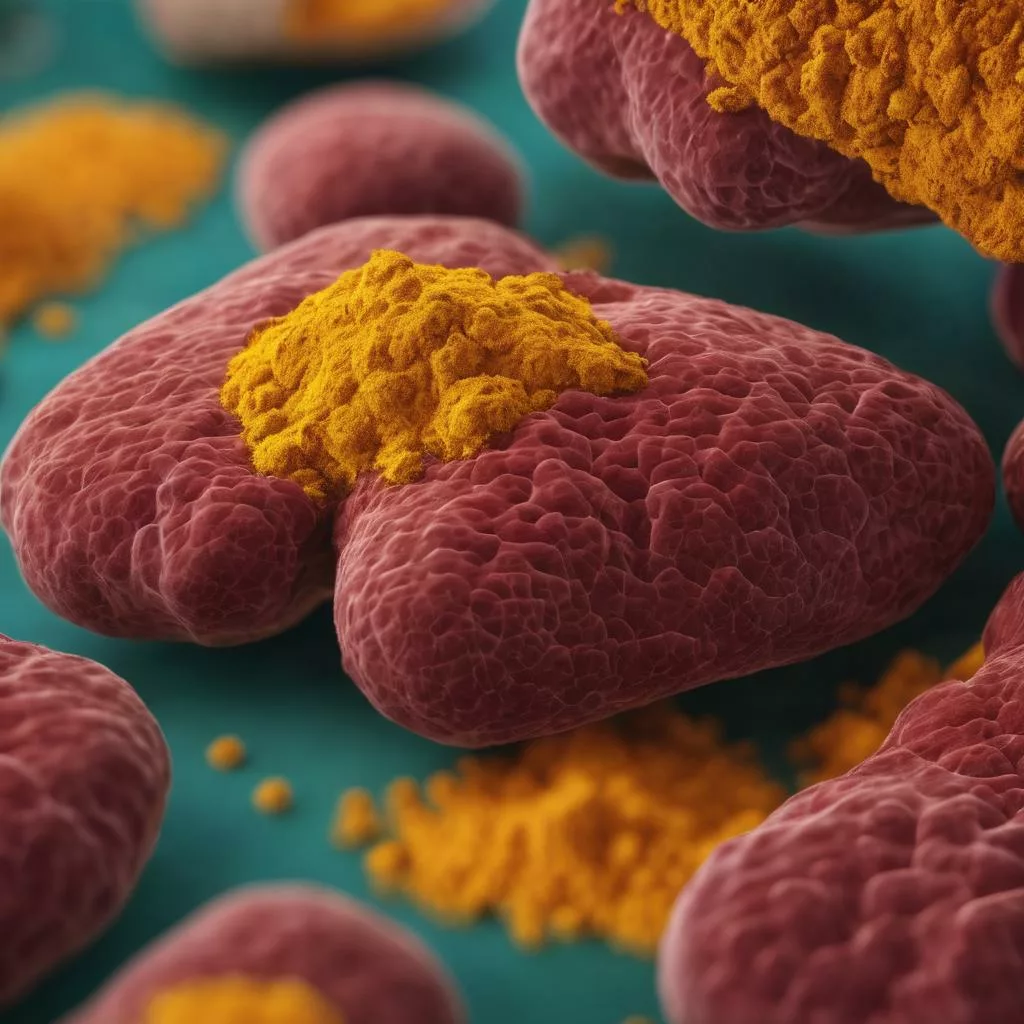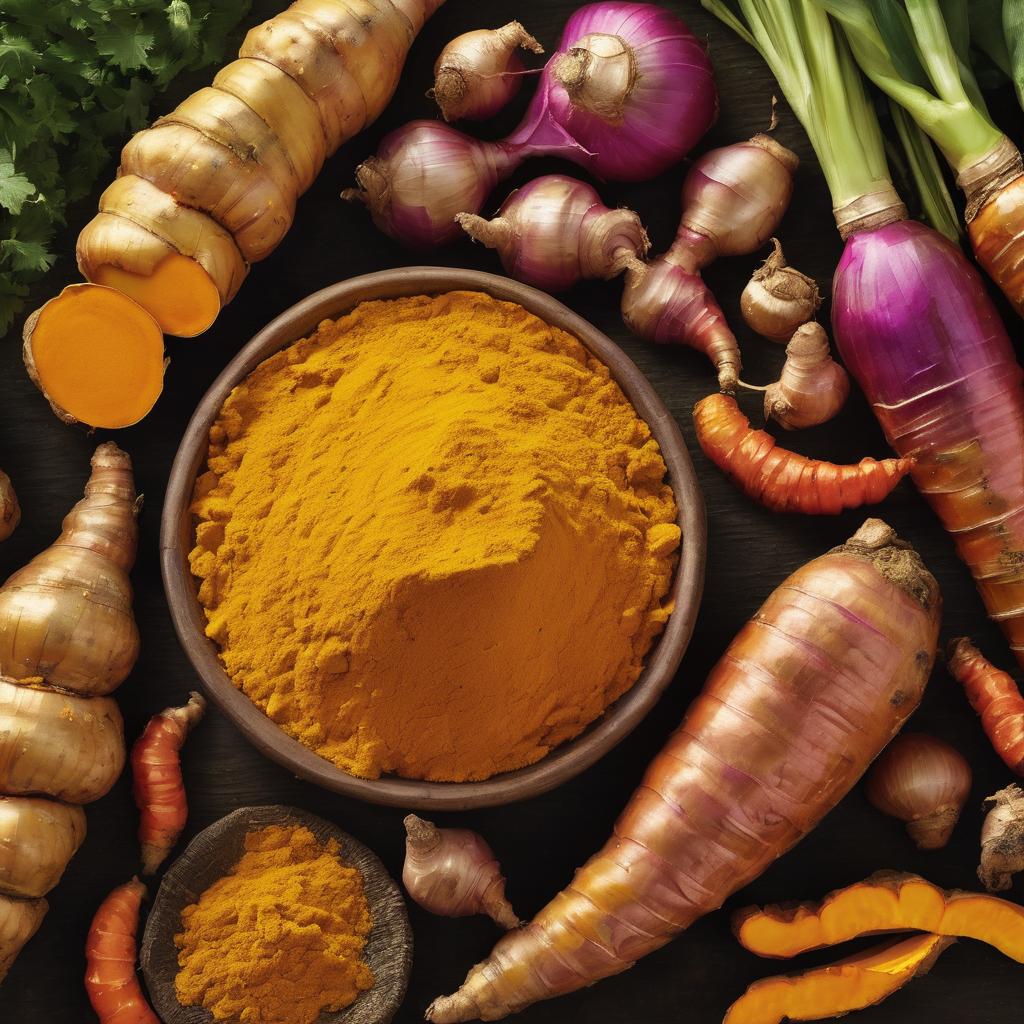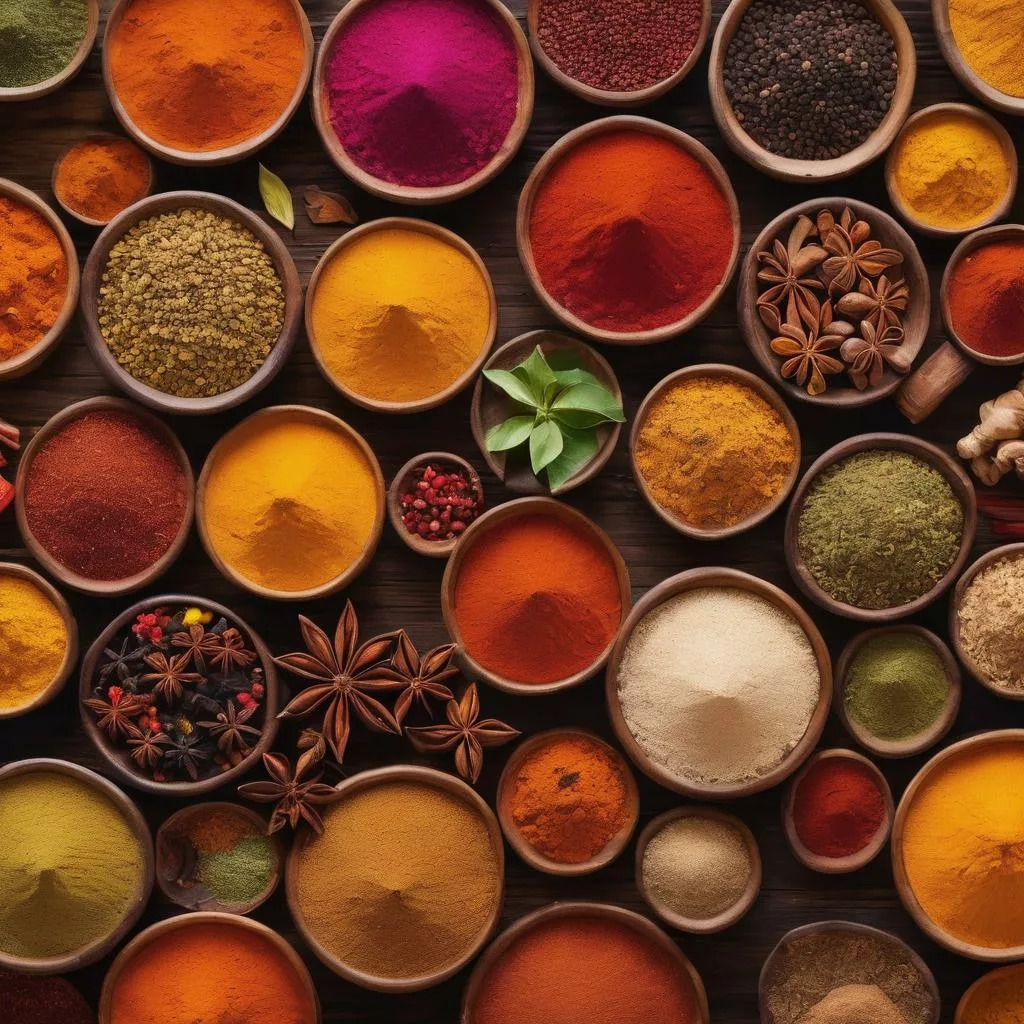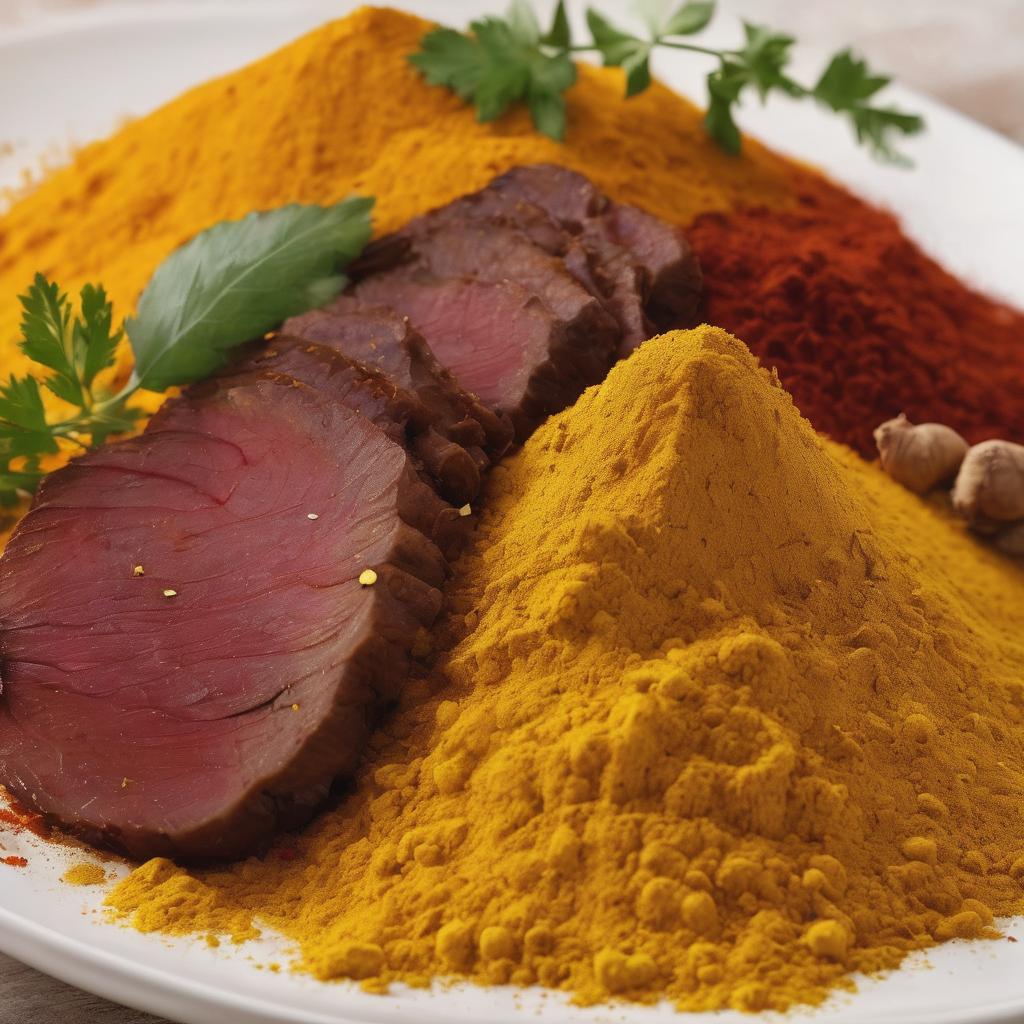
Do you want to know the key to a healthy liver? Look no further than curcumin. This powerful compound, found in turmeric, has been hailed for its numerous health benefits. When it comes to liver health, curcumin plays a crucial role in protecting this vital organ. Its anti-inflammatory effects help reduce liver inflammation, while its antioxidant properties combat oxidative stress.
Join us as we explore why curcumin is essential for maintaining a healthy liver.
Key Takeaways
- Curcumin has potential therapeutic effects on liver health.
- Curcumin modulates liver enzymes and enhances the liver’s natural detoxification processes.
- Curcumin possesses potent anti-inflammatory properties and reduces inflammation in the liver.
- Curcumin acts as a powerful antioxidant, neutralizing harmful free radicals and promoting liver cell regeneration.
Liver Diseases and Curcumin
If you have liver diseases, curcumin can be beneficial for you. Curcumin, a natural compound found in turmeric, has been extensively studied for its potential therapeutic effects on liver health. One of the key benefits of curcumin for individuals with liver diseases is its ability to interact with certain drugs commonly used in the treatment of these conditions.
Drug interactions are an important consideration for individuals with liver diseases, as impaired liver function can affect the metabolism and clearance of drugs from the body. Studies have shown that curcumin can modulate drug-metabolizing enzymes, potentially affecting the absorption, distribution, metabolism, and excretion of drugs.
This means that taking curcumin alongside certain medications may alter their effectiveness or increase the risk of adverse effects.
Furthermore, curcumin absorption can also be influenced by liver diseases. The liver plays a crucial role in the absorption and metabolism of various compounds, including curcumin. Impaired liver function can affect the absorption of curcumin into the bloodstream, potentially reducing its bioavailability and therapeutic benefits.
However, research has shown that combining curcumin with substances like piperine, found in black pepper, can enhance its absorption and bioavailability.
Scientific studies
M. J. Dehzad et al, Effects of Culcumin/Tumeric Supplements of Liver Functions in Adults, June 2023,
Saeede Saadati et al, Curcumin and Inflammation in Non-Alcoholics: alcoholics fatty liver disease, June 2019,
The Role of Curcumin in Liver Protection
Curcumin plays a vital role in protecting the liver through its interactions with various biological processes. This powerful compound has been found to have a significant impact on liver enzymes and plays a crucial role in liver detoxification. Here are four ways in which curcumin helps protect the liver:
- Modulation of liver enzymes: Curcumin has been shown to modulate the activity of various liver enzymes, including cytochrome P450 enzymes. These enzymes play a crucial role in drug metabolism and detoxification. By regulating these enzymes, curcumin helps maintain the liver’s ability to process and eliminate toxins effectively.
- Enhancement of liver detoxification: Curcumin has been found to enhance the liver’s natural detoxification processes. It stimulates the production of phase II detoxification enzymes, such as glutathione S-transferase and quinone reductase. These enzymes are responsible for the breakdown and elimination of harmful substances from the body.
- Reduction of oxidative stress: The liver is highly susceptible to oxidative stress due to its role in detoxification and metabolism. Curcumin acts as a potent antioxidant, scavenging free radicals and reducing oxidative damage to liver cells. This helps protect the liver from inflammation and damage caused by oxidative stress.
- Inhibition of liver fibrosis: Curcumin has been shown to inhibit the development of liver fibrosis, a condition characterized by the excessive accumulation of scar tissue in the liver. It does so by reducing inflammation, inhibiting the activation of hepatic stellate cells, and suppressing the production of pro-fibrotic molecules.
Scientific studies
Mohammed Hosein Farzaei et al, June 2018, Curcumin in Liver Diseases: A Systematic Review of the Cellular Mechanisms of Oxidative Stress and Clinical Perspective,
Curcumin’s Anti-Inflammatory Effects on the Liver
Continuing the discussion on liver protection, curcumin’s anti-inflammatory effects contribute to its essential role in maintaining liver health. Inflammation is a natural response of the immune system to injury or infection. However, chronic inflammation can lead to liver damage and the development of liver diseases such as hepatitis, cirrhosis, and liver cancer.
Research has shown that curcumin, a bioactive compound found in turmeric, possesses potent anti-inflammatory properties. It inhibits the activity of various enzymes and proteins involved in the inflammatory response, including nuclear factor-kappa B (NF-κB) and cyclooxygenase-2 (COX-2).
By targeting these pathways, curcumin helps to reduce inflammation in the liver and protect against liver injury. Furthermore, curcumin has been found to modulate liver enzymes involved in detoxification processes.
The liver plays a crucial role in detoxifying harmful compounds and metabolizing drugs. Studies have demonstrated that curcumin can enhance the activity of enzymes such as glutathione S-transferase (GST) and quinone reductase (QR), which are involved in the detoxification of carcinogens and reactive oxygen species.
Scientific Studies
Antonio Riccardo Buonomo et al, The role of Curcumin in Liver Disease, 2019, 1603-1620, https://doi.org/10.5114%2Faoms.2018.73596
Curcumin’s Antioxidant Properties for Liver Health
To ensure optimal liver health, it is important to understand the role of curcumin’s antioxidant properties. Curcumin, the active compound found in turmeric, has been extensively studied for its therapeutic benefits in liver diseases. Here are four ways in which curcumin’s antioxidant properties contribute to liver health:
- Neutralizes free radicals: Curcumin acts as a powerful antioxidant, scavenging harmful free radicals that can damage liver cells. By neutralizing these reactive molecules, curcumin helps protect liver tissue from oxidative stress.
- Promotes liver detoxification: The liver plays a crucial role in detoxifying harmful substances from the body. Curcumin enhances the activity of detoxification enzymes in the liver, aiding in the elimination of toxins and reducing the burden on this vital organ.
- Reduces inflammation: Chronic inflammation is a common feature of liver diseases. Curcumin’s antioxidant properties help reduce inflammation by inhibiting the production of inflammatory molecules in the liver. This can alleviate liver damage and improve overall liver function.
- Supports liver regeneration: Curcumin has been shown to promote liver cell regeneration, supporting the repair and renewal of damaged liver tissue. This can be particularly beneficial in liver diseases where tissue damage is a significant concern.
Scientific Studies
10 Proven Health Benefits of Curcumin and Turmeric, 2021,
Karoline Jakubcxyk et al, Antioxidant Potential of Curcumin: A Meta-Analysis of Randomized Clinical Trials, 2020, 9(11),
Curcumin’s Potential as a Liver Disease Treatment

If you’re seeking a potential treatment for liver disease, consider the therapeutic potential of curcumin. Curcumin, the active component of turmeric, has been extensively studied for its beneficial effects on liver health and its potential as a treatment for liver diseases.
Research suggests that curcumin exhibits a wide range of biological activities that can help protect the liver and improve its function.
Studies have shown that curcumin’s therapeutic potential in liver disease is due to its ability to modulate various molecular mechanisms involved in liver damage and inflammation.
Curcumin has been found to possess strong antioxidant and anti-inflammatory properties, which can help reduce oxidative stress and inflammation in the liver. In addition, curcumin has been shown to inhibit the activation of hepatic stellate cells, which play a critical role in the development of liver fibrosis.
Furthermore, curcumin has been found to have hepatoprotective effects by promoting liver regeneration and inhibiting apoptosis, or cell death, in liver cells. It can also help improve the metabolism of fats and cholesterol in the liver, which is important for maintaining liver health.
Frequently Asked Questions
What is curcumin, and how does it work to promote liver health?
Curcumin is a bioactive compound found in the spice turmeric. It benefits liver health through its multifaceted actions. It acts as a potent antioxidant, helping to neutralize free radicals that can damage liver cells. It also has anti-inflammatory properties, which reduce liver inflammation and promote healing.
Curcumin boosts the production of bile, aiding in digestion and detoxification. Furthermore, it enhances the activity of liver enzymes responsible for detoxifying harmful substances in the body.
Are there specific liver conditions for which curcumin is particularly effective as a complementary treatment?
Curcumin has shown potential in various liver conditions, including hepatitis, cirrhosis, and liver cancer. In hepatitis, it may help reduce inflammation and viral replication. For cirrhosis, curcumin’s anti-inflammatory and antioxidant properties can provide some relief. In liver cancer, it may inhibit the growth of cancer cells and promote apoptosis, or programmed cell death.
Can curcumin be used alongside conventional medical treatments for liver diseases?
Yes, curcumin can be used as a complementary treatment alongside conventional medical approaches for liver diseases. It should not replace prescribed medications or therapies, but it can enhance their effectiveness and reduce side effects. However, it’s crucial to consult with a healthcare professional to ensure safe and effective integration.
Are there potential side effects or contraindications associated with curcumin supplementation?
While curcumin is generally safe when taken at recommended doses, high doses may lead to gastrointestinal discomfort in some individuals. Curcumin can also interact with blood-thinning medications and other drugs, so it’s crucial to consult your healthcare provider before using it as a supplement, especially if you have underlying health issues.
Are There Any Side Effects of Taking Curcumin for Liver Health?
Taking curcumin for liver health may have potential interactions and side effects. It is important to consult with a healthcare professional before starting any new supplement or medication. They can provide guidance on the appropriate curcumin dosage and potential interactions with other medications you may be taking.
While curcumin is generally considered safe, some people may experience gastrointestinal symptoms such as diarrhea or nausea. It is always important to prioritize your liver health and consult a healthcare professional for personalized advice.
Conclusion
In conclusion, curcumin has been shown to be essential for liver health due to its numerous beneficial properties. One interesting statistic is that a study found that curcumin supplementation led to a significant reduction in liver inflammation markers by 78% in patients with non-alcoholic fatty liver disease.
These findings highlight the potential of curcumin as a natural and effective treatment for liver diseases, making it a promising area for further research and development.


